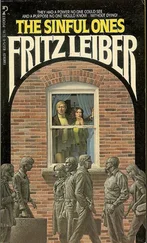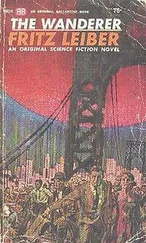Fritz Leiber - The Best of Fritz Leiber
Здесь есть возможность читать онлайн «Fritz Leiber - The Best of Fritz Leiber» весь текст электронной книги совершенно бесплатно (целиком полную версию без сокращений). В некоторых случаях можно слушать аудио, скачать через торрент в формате fb2 и присутствует краткое содержание. Жанр: Фантастика и фэнтези, на английском языке. Описание произведения, (предисловие) а так же отзывы посетителей доступны на портале библиотеки ЛибКат.
- Название:The Best of Fritz Leiber
- Автор:
- Жанр:
- Год:неизвестен
- ISBN:нет данных
- Рейтинг книги:3 / 5. Голосов: 1
-
Избранное:Добавить в избранное
- Отзывы:
-
Ваша оценка:
- 60
- 1
- 2
- 3
- 4
- 5
The Best of Fritz Leiber: краткое содержание, описание и аннотация
Предлагаем к чтению аннотацию, описание, краткое содержание или предисловие (зависит от того, что написал сам автор книги «The Best of Fritz Leiber»). Если вы не нашли необходимую информацию о книге — напишите в комментариях, мы постараемся отыскать её.
The Best of Fritz Leiber — читать онлайн бесплатно полную книгу (весь текст) целиком
Ниже представлен текст книги, разбитый по страницам. Система сохранения места последней прочитанной страницы, позволяет с удобством читать онлайн бесплатно книгу «The Best of Fritz Leiber», без необходимости каждый раз заново искать на чём Вы остановились. Поставьте закладку, и сможете в любой момент перейти на страницу, на которой закончили чтение.
Интервал:
Закладка:
Beyond them—black desert to a horizon denned only by the blotting out of the star fields.
Low in the heavens gleamed sky-blue Earth, now Mars’ evening star, riding close to the meager crescent of Phobos.
To the Martian coleopteroids this scene presented itself in a very different fashion, since they depended on perception rather than any elaborate sensory set-up. Their internal brains were directly conscious of everything within a radius of about fifty yards. For them the blue earthshine was a diffuse photonic cloud just above the threshold of perception, similar to but distinct from the photonic clouds of the starlight and faint moonshine; they could perceive no image of Earth unless they used lenses to create such an image within their perceptive range. They were conscious of the ground beneath them as a sandy hemisphere tunneled through by various wrigglers and the centipedelike burrowers. They were conscious of each other’s armored, neatly-compartmented bodies, and each other’s thoughts. But chiefly their attention was focused on that squidgy, uninsulated, wasteful jumble of organs that thought of itself as Mr. Whitlow—an astounding moist suppet of life on dry, miserly Mars.
The physiology of the coleopteroids was typical of a depleted-planet economy. Their shells were double; the space between could be evacuated at night to conserve heat, and flooded by day to absorb it. Their lungs were really oxygen accumulators. They inhaled the rarefied atmosphere about one hundred times for every exhalation, the double-valve mouth permitting the building up of high internal pressure. They had one hundred percent utilization of inhaled oxygen, and exhaled pure carbon dioxide freighted with other respiratory excretions. Occasional whiffs of this exceedingly bad breath made Mr. Whitlow wrinkle his flaring nostrils.
Just what permitted Mr. Whitlow to go on functioning, even speechifying, in the chill oxygen dearth was by no means so obvious. It constituted as puzzling a question as the source of the soft glow that bathed him.
Communication between him and his audience was purely telepathic. He was speaking vocally at the request of the coleopteroids, because like most nontelepaths he could best organize and clarify his thoughts while talking. His voice died out abruptly in the thin air. It sounded like a phonograph needle scratching along without amplification, and intensified the eerie ludicrousness of his violent gestures and facial contortions.
“And so,” Whitlow concluded wheezily, brushing the long hair from his forehead, “I come back to my original proposal: Will you attack Earth?”
“And we, Mr. Whitlow,” thought the Chief Coleopteroid, “come back to our original question, which you still have not answered: Why should we?”
Mr. Whitlow made a grimace of frayed patience. “As I have told you several times, I cannot make a fuller explanation. But I assure you of my good faith. I will do my best to provide transportation for you, and facilitate the thing in every way. Understand, it need only be a token invasion. After a short time you can retire to Mars with your spoils. Surely you cannot afford to pass up this opportunity.”
“Mr. Whitlow,” replied the Chief Coleopteroid with a humor as poisonously dry as his planet, “I cannot read your thoughts unless you vocalize them. They are too confused. But I can sense your biases. You are laboring under a serious misconception as to our psychology. Evidently it is customary in your world to think of alien intelligent beings as evil monsters, whose only desire is to ravage, destroy, tyrannize, and inflict unspeakable cruelties on creatures less advanced than themselves. Nothing could be farther from the truth. We are an ancient and unemotional race. We have outgrown the passions and vanities— even the ambitions—of our youth. We undertake no projects except for sound and sufficient reason.”
“But if that’s the case, surely you can see the practical advantages of my proposal. At little or no risk to yourselves, you will acquire valuable loot.”
The Chief Coleopteroid settled back on his boulder, and his thoughts did the same. “Mr. Whitlow, let me remind you that we have never gone to war lightly. During the whole course of our history, our only intelligent enemies have been the molluscoids of the tideless seas of Venus. In the springtide of their culture they came conquesting in their water-filled spaceships, and we fought several long and bitter wars. But eventually they attained racial maturity and a certain dispassionate wisdom, though not equivalent to our own. A perpetual truce was declared, on condition that each party stick to its own planet and attempt no more forays. For ages we have abided by that truce, living hi mutual isolation. So you can see, Mr. Whitlow, that we would be anything but inclined to accept such a rash and mysterious proposal as yours.”
“May I make a suggestion?” interjected the Senior Coleopteroid on the Chiefs right. His thoughts flicked out subtly toward Whitlow. “You seem, Earthling, to possess powers that are perhaps even hi excess of our own. Your arrival on Mars without any perceptible means of transport and your ability to endure its rigors without any obvious insulation, are sufficient proofs. From what you tell us, the other inhabitants of your planet possess no such powers. Why don’t you attack them by yourself, like the solitary armored poison-worm? Why do you need our aid?”
“My friend,” said Mr. Whitlow solemnly, bending forward and fixing his gaze on the silvery-shelled elder, “I abhor war as the foulest evil, and active participation in it as the greatest crime. Nonetheless, I would sacrifice myself as you suggest, could I attain my ends that way. Unfortunately I cannot. It would not have the psychological effect I desire. Moreover”—he paused embarrassedly—“I might as well confess that I am not wholly master of my powers. I don’t understand them. The workings of an inscrutable providence have put into my hands a device that is probably the handiwork of creatures vastly more intelligent than any in this solar system, perhaps even this cosmos. It enables me to cross space and time. It protects me from danger. It provides me with warmth and illumination. It concentrates your Martian atmosphere in a sphere around me, so that I can breathe normally. But as for using it hi any larger way—I’d be mortally afraid of its getting out of control. My one small experiment was disastrous. I wouldn’t dare.”
The Senior Coleopteroid shot a guarded aside to the Chief. “Shall I try to hypnotize his disordered mind and get this device from him?”
“Do so.”
“Very well, though I’m afraid the device will protect his mind as well as his body. Still, it’s worth the chance.”
“Mr. Whitlow,” thought the Chief abruptly, “it is time we got down to cases. Every word you say makes your proposal sound more ir-rational, and your own motives more unintelligible. If you expect us to take any serious interest, you must give us a clear answer to one question: Why do you want us to attack Earth?”
Whitlow twisted. “But that’s the one question I don’t want to answer.”
“Well, put it this way then,” continued the Chief patiently. “What personal advantage do you expect to gain from our attack?”
Whitlow drew himself up and tucked in his necktie. “None! None whatsoever! I seek nothing for myself!”
“Do you want to rule Earth?” the Chief persisted.
“No! No! I detest all tyranny.”
“Revenge, then? Has Earth hurt you and are you trying to hurt it back?”
“Absolutely not! I would never stoop to such barbaric behavior. I hate no one. The desire to see anyone injured is furthest from my thoughts.”
“Come, come, Mr. Whitlow! You’ve just begged us to attack Earth. How can you square that with your sentiments?”
Читать дальшеИнтервал:
Закладка:
Похожие книги на «The Best of Fritz Leiber»
Представляем Вашему вниманию похожие книги на «The Best of Fritz Leiber» списком для выбора. Мы отобрали схожую по названию и смыслу литературу в надежде предоставить читателям больше вариантов отыскать новые, интересные, ещё непрочитанные произведения.
Обсуждение, отзывы о книге «The Best of Fritz Leiber» и просто собственные мнения читателей. Оставьте ваши комментарии, напишите, что Вы думаете о произведении, его смысле или главных героях. Укажите что конкретно понравилось, а что нет, и почему Вы так считаете.









